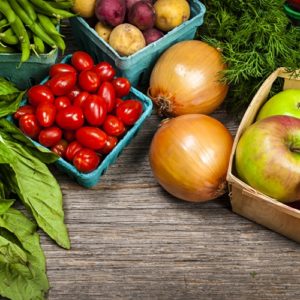If you’re in Boulder culinary school, then you might have already heard of the food redistribution organization called Boulder Food Rescue. This is a nonprofit organization that aims to reduce food waste. It started as only five friends determined to make an economical, environmental and social impact, and now boasts 150 active volunteers.
Americans experiencing a food crisis
Food waste is a major issue across the globe. Farms and stores toss edible food out daily because it is not considered “perfect,” usually due to aesthetics such as slight bruising or off coloring. Yet in 2013, 49.1 million Americans lived in food-insecure households, meaning they have reduced quality, variety or desirability of diet. Some don’t have access to the right nutrition and others may not even know where their next meal is coming from.
Origins of the organization
The Boulder Food Rescue started as an attempt to unify the community through food. The members began by asking local stores to donate meals to host in the park. They wanted to put a heavy emphasis not only on the cooking but all the processes of serving, eating and cleaning. The group’s numbers started small, but now every Saturday afternoon, the nonprofit garners about 100 people. With positive feedback from the weekly attendees, the members wanted to do more and began Boulder Food Rescue. This group delivers meals to institutions who traditionally serve to food insecure populations.
After four years of hard work, volunteers at this nonprofit now pick up food from eight stores every day and distributes 1,000 pounds of healthy food a day. Their attempts to eliminate environmental are multifaceted, too. They transport more than 80 percent of their food by machines that are human powered such as bicycles and trailers. In Boulder alone, they have redistributed 1 million pounds of food in only four years. But they are not the only ones. Cities across the nation are catching on and adopting similar organizations. You can do your part by joining a group like Boulder Food Rescue, no matter what city you’re in! But there are others ways you can be proactive. As a culinary arts student, you are constantly working with food. Here are three simple ways you can do your part by cutting food waste:
1. Plan your meals: As a student, you’re going to want to be experimenting with all different types of recipes. Planning before you hit the grocery store could reduce food waste. Instead of mindlessly throwing fruits and vegetables into your cart, buy only what you need. That way, food won’t spoil before you have the chance to use it. Try writing out your grocery list before you even step into a store for the best organization.
2. Shop your refrigerator first: If you’re constantly working with a surplus of ingredients, you can forget what you already have. Before hitting the grocery store, shop around in your refrigerator. Move things around and see what can be used or needs to be used soon.
3. Store food in the right places: A predominate amount of food and vegetable waste is due to improper storage. Know the best temperatures and places for your produce so that you can reduce waste.


